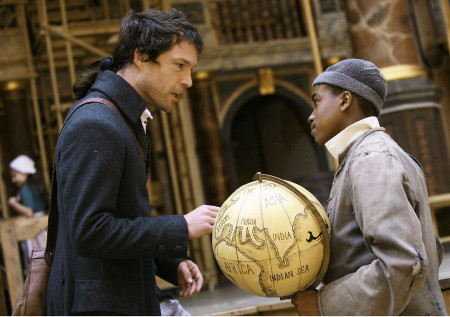The bread I just purchased from the Boulangerie is so fresh, it still smells like yeast. As an American, it makes me wonder if Thomas Paine ever remembered to eat while he worked. Geniuses rarely remember such things. And if he did remember, or if someone brought him food, was it ever fresh straight-out-of-the-oven bread? And if so, how often did he get it? Was it a pleasure, or was it something he took for granted? Biting into, with ink-stained fingers, writing tirelessly.
Speaking of taking things for granted—Happy Independence Day.
Of course, it’s July 4th, 1776 that we always take as the
birthday of our country—236 years old, now that’s something!—but it wasn’t
until September 3rd, 1783—an entire seven years later—that the King
of England officially recognized the independence of the 13 colonies. Now, personally, I think that the country
you’re at war with getting beaten and officially ‘recognizing’ you as a country
is merely a formality. Who has the
right, after all, to officially recognize something else which already
exists? But, I digress.
That treaty was more than just an official recognition, it
was a promise to the end of the war, and that is a celebration to be recognized
indeed. Now, I suppose you’ve always
wondered where the treaty that ended the war with Britain was signed.
Ha.—Knew you always wondered.
That’s right, here in Paris.
There it is. It’s not much now,
but 56 rue Jacob used to be the Hotel d’York. This is where Franklin, Jay and Adams met with two British delegates to sign the treaty which is a moment in history that goes un-celebrated.
Not far from this area is where the original Shakespeare & Co. bookshop was established, and where Thomas Paine lived (Rue de l'Odeon) while he helped the French during their Revolution--which, I'm guessing you didn't know about!
56 rue Jacob is also not too far from Café Procope, the first Café in
Paris, where Benjamin Franklin and Thomas Jefferson often dined. Also, Voltaire supposedly drank 40 cups of
coffee a day there, though he mixed it with chocolate, so does that really
count? Later, Robespierre, Danton, Marat
and Cordeliers—all important men of the French Revolution—would dine there to
discuss politics.
(From Shakespeare's Globe production of "The New World")



No comments:
Post a Comment